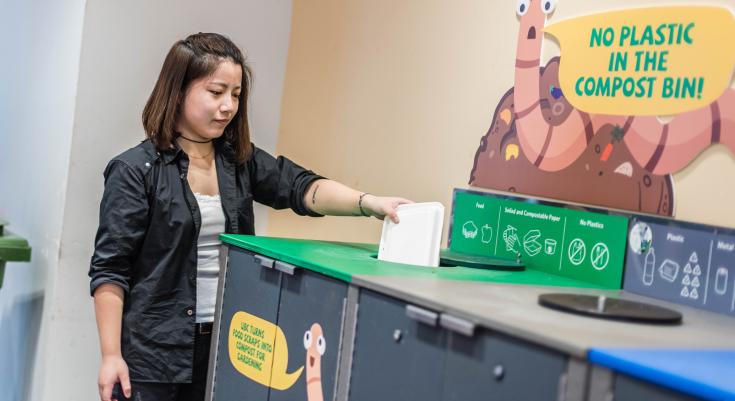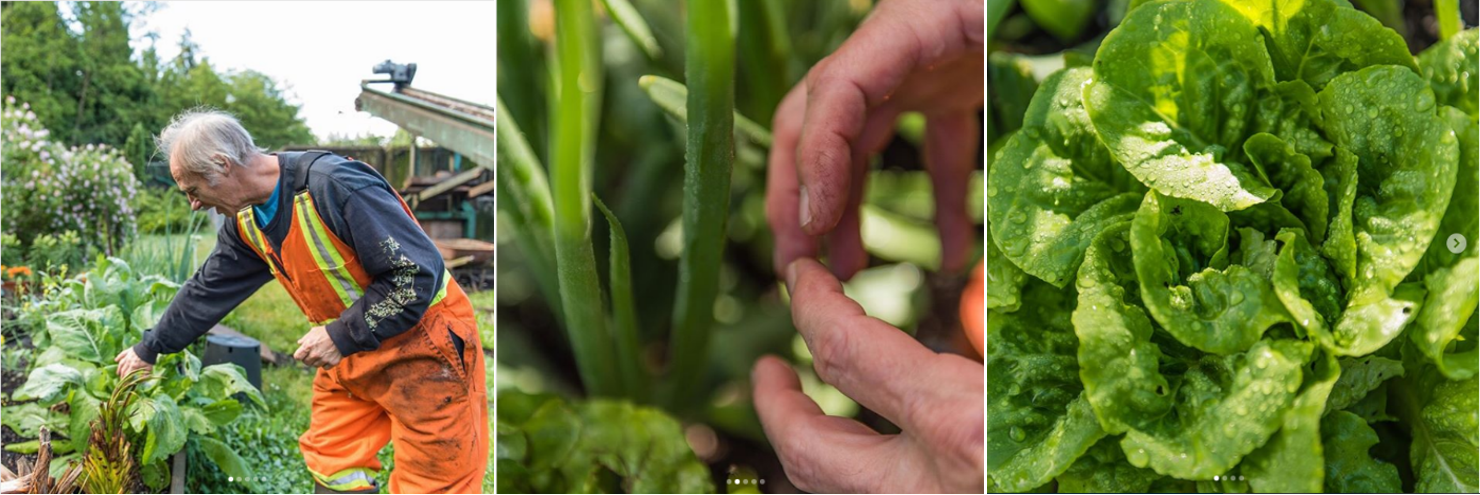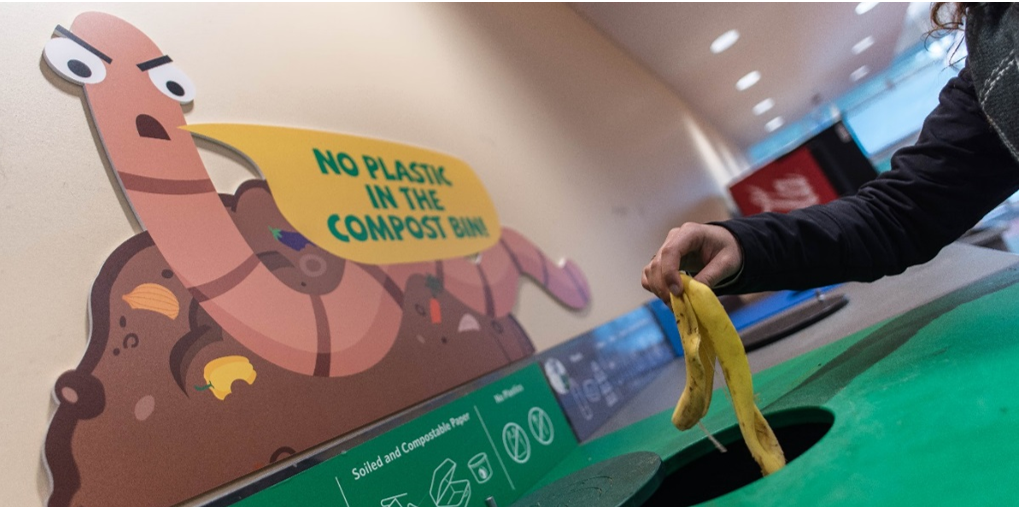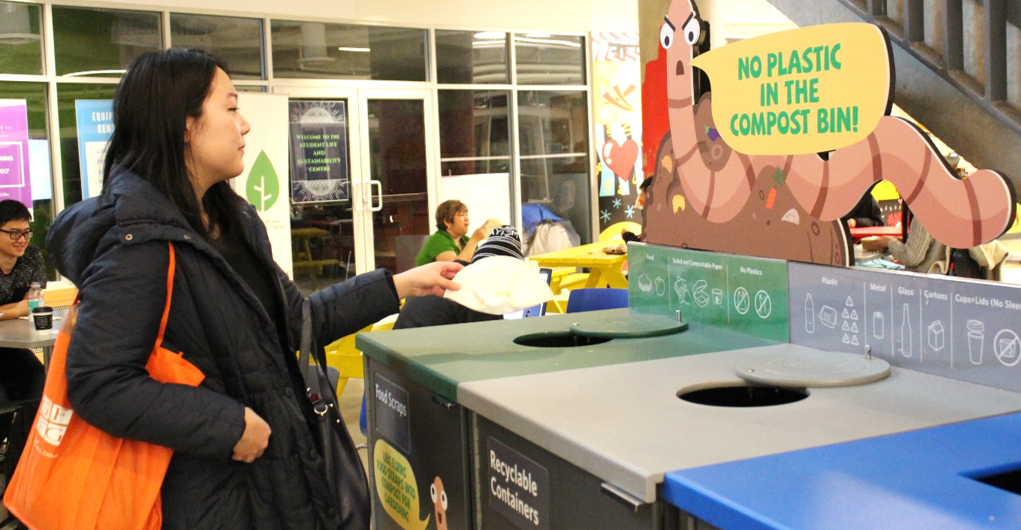
You may have spotted Thelma and Thomas, the worms, springing up across campus to remind us to Sort it Out.
At UBC, we have a closed loop system where the organic waste we produce is collected and made into compost for gardening, landscaping, and farming. All of the food scraps from our campus Sort it Out bins are turned into compost, as well as the organic waste from food services, residences and our neighbourhoods.
Thelma and Thomas, two of UBC’s worms, have sprung up across campus to remind the UBC community to sort their waste properly. Thelma shares how much she loves UBC compost, but Thomas feels passionately "but not when it has plastic in it!". You can see them on Sort it Out stations along Main Mall and in the AMS Nest, or you can check them out here.
Turning food scraps into compost for the worms
UBC was the first very Canadian university to have an in-vessel composter — a container which can process up to five tonnes of organic waste a day. From 2016 to 2017, we composted over 900 tonnes of organic material on campus, that's roughly the weight of one thousand cars!

John Mann works as UBC’s Assistant Compost Operator where he transforms organic waste into rich soil. Mann stresses, “The world needs to be taught what compost can do”. For several years now he’s been fostering a small garden, which is home to many large vegetables and flowers. Photo by Paul Joseph, Communications and Marketing.
Thelma and Thomas are concerned about the amount of plastic that ends up in food scrap bins around campus. If any contaminants – like plastic bags – get into these green bins, the food scraps become unusable and have to be thrown into the landfill along with garbage. Garbage rotting in landfills increases the risk of soil, water and air pollution, and creates harmful emissions like methane gas. And if bits of plastic sneak their way into the composter, they can jam the machinery inside and need to be cut out by hand.
However, hope is not lost as UBC moves towards sustainability goals. Bud Fraser, UBC’s Senior Planning and Sustainability Engineer, says that “Composting food scraps prevents them from going into landfills where they create harmful GHG [greenhouse gas] emissions”.
Fraser adds that composting supports UBC’s Climate Action Plan by reducing emissions regionally. UBC's goal is to divert 80 per cent of our waste from the landfill by 2020, to be recycled or composted instead. To achieve this, UBC needs the help of everyone in the community to ensure that items like paper cups are placed in the right bins. The City of Vancouver is working towards similar goals as UBC, having diverted hundreds of thousands of tonnes of organic waste from landfills over the last few years.

A student throws a banana peel into the green bin at Irving K. Barber, another spot Thelma and Thomas have made an appearance.
Worms outreach to students
Thelma and Thomas plan on visiting student residences soon, where over 10,000 mouths are fed each day. As such, residences are one of campus’s largest producers of food scraps and can be “a major source of waste contamination”, says Charlene Ponto, Sustainability Engagement Lead, Sustainability and Engineering. Ponto notes that students living on campus will be an important player in helping UBC reach its zero waste goals by putting only food scraps in the green bins.

Keiko, a student who met Thelma and Thomas in the AMS Nest, says that we should “think twice before we throw everything away in the garbage bin” and adds that taking “even three extra seconds would help the way we think about where it goes”.
Think you got the idea? Play the Sort it Out Game to test your knowledge and win a prize! And next time you see Thelma and Thomas at the green bins, make sure to take the time to Sort it Out.